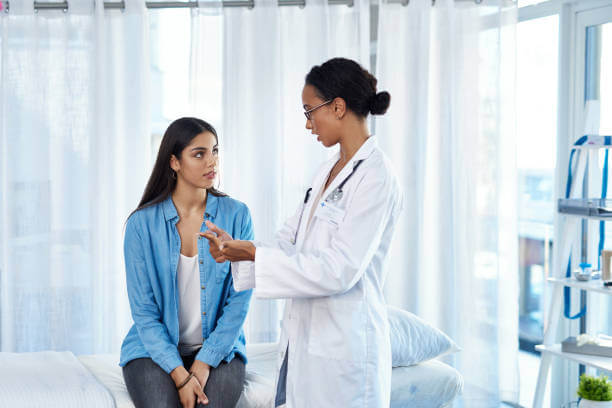
Routine gynecologic care is the mainstay of every woman’s wellness plan. Nevertheless, many women either put off seeing a gynecologist or skip it altogether – after all, they feel okay and don’t currently feel the necessity to do so. If you’re one of those women, the more you know about your sexual and reproductive health, the more proactive and diligent you become in seeing your gynecologist.
To help empower you, we’ve provided below the answers to some common questions that our providers here at University OB/GYN Associates get from our patients.
Q: How Soon Should I Start Seeing a Gynecologist?
A: If you haven’t done so already, schedule a visit as soon as possible regardless of whether you have symptoms of a gynecologic problem or not.
In fact, the American College of Obstetricians and Gynecologists (ACOG) recommends routine well-woman visits starting between the ages of 13 and 15.
Q: What Is a Typical Gynecology Appointment Like?
A: Your first visit can consist of talking with your doctor and, possibly, having certain testing or exams done.
During your appointment, you and your doctor will cover any questions you may have concerning your intimate health. This may include your birth control options, any problems you may have with your monthly period, any unusual symptoms you may have, or your risk for sexually transmitted infections (STIs).
Q: How Do I Prepare for an Appointment with a Gynecologist?
A: Schedule your visit between menstrual periods. Refrain from sexual intercourse, douching, or inserting anything into your vagina for 24 hours before your exam. That’s because you may irritate vaginal tissue, thus increasing the risk of getting an abnormal Pap test result.
During your visit, you and your doctor will discuss your sexual health history and any problems or concerns you may have about your reproductive health. Speak freely and frankly with your doctor to ensure that all your concerns will get addressed.
Q: What Is a Pap Test, and Who Should Get One?
A: Also known as a Pap smear, a Pap test is a procedure done to screen for cervical cancer. It involves your doctor gently obtaining a tiny sample of cells from your cervix (the lower, narrow part of your uterus) and sending the sample to a lab to check for any abnormal cells. Abnormal cells do not necessarily mean you have cervical cancer; it’s just that further tests may be necessary.
If you are between the ages of 21 and 29, you should have a Pap test as part of your well-woman exam. If you are between 30 and 65 years of age, you should get a Pap test and HPV test every five years, or just a Pap test every three years.
Q: Are Sexually Transmitted Infections (STIs) Treatable?
A: Herpes, trichomoniasis, gonorrhea, chlamydia, and HIV – which are the most common STIs –are spread through vaginal, anal, and oral sex. Many of these conditions can be cured, while others cannot, albeit they are treatable. However, early diagnosis and treatment are crucial for the prevention of serious health complications.
Q: How Would I Know if I Have an STI?
A: The only way to be sure is to get tested. If you think you have been exposed or have symptoms, such as a rash, itching, or unusual discharge, contact your gynecologist immediately to arrange an appointment.
Q: What is HPV? Is It Vaccine Preventable?
A: HPV stands for human papillomavirus. It is the leading cause of cervical cancer.
The HPV vaccine has been proven to help protect people from most types of HPV that cause cervical cancer. Anyone from ages 9-26 – and some women over 26 to age 40 – can receive the vaccine, which is given in three shots over a six-month period.
Board-Certified Gynecologist in Syracuse, New York
At University OB/GYN Associates, our providers don’t just stop at delivering outstanding medical care. We recognize that knowledge is half the battle, and thus, we take pleasure in providing useful information to equip the women in our community to make the wisest decisions about their intimate health and care.
Team up with one of our board-certified gynecologists today! Contact our staff at (315) 464-5162 to schedule a consultation or well-woman visit.



